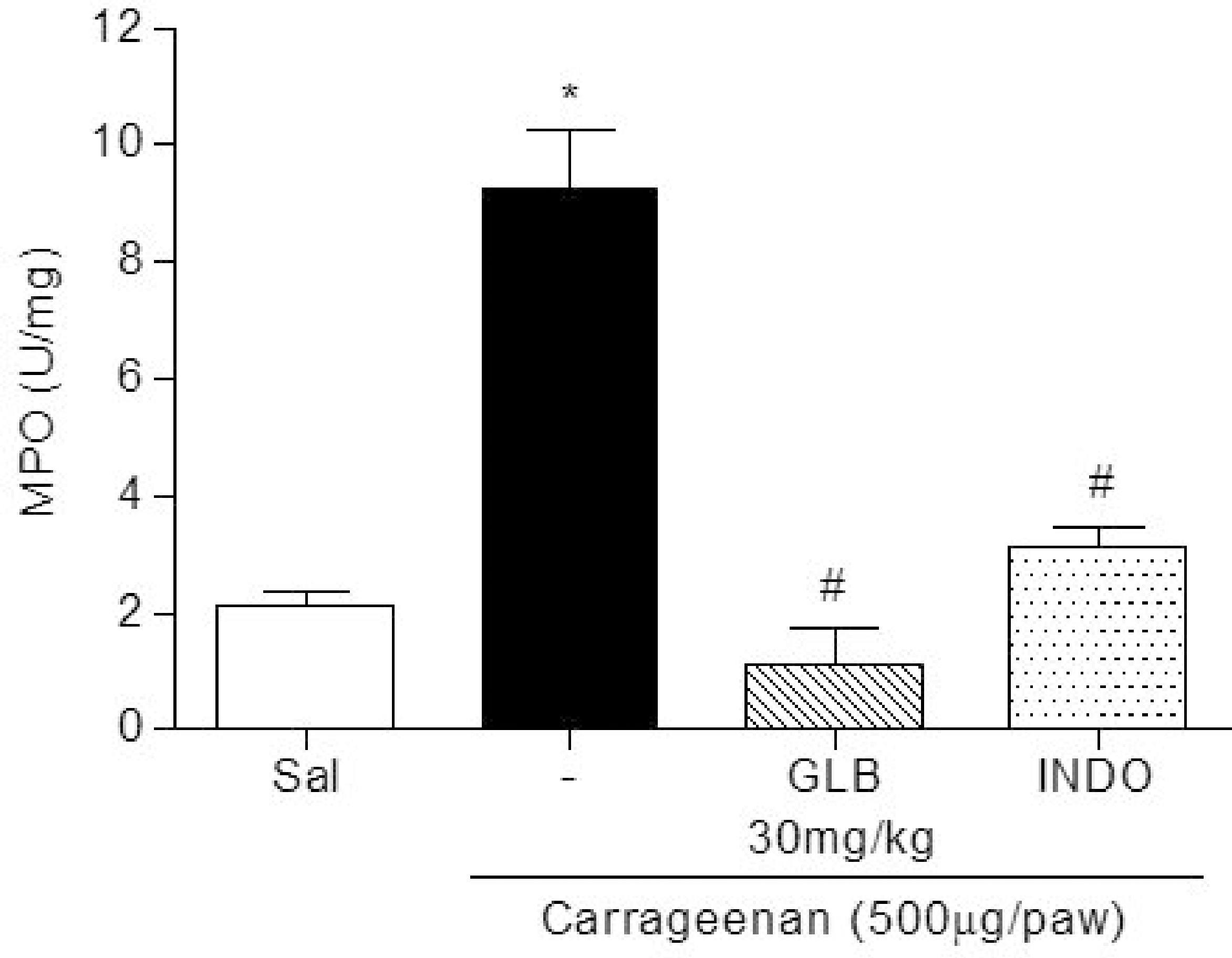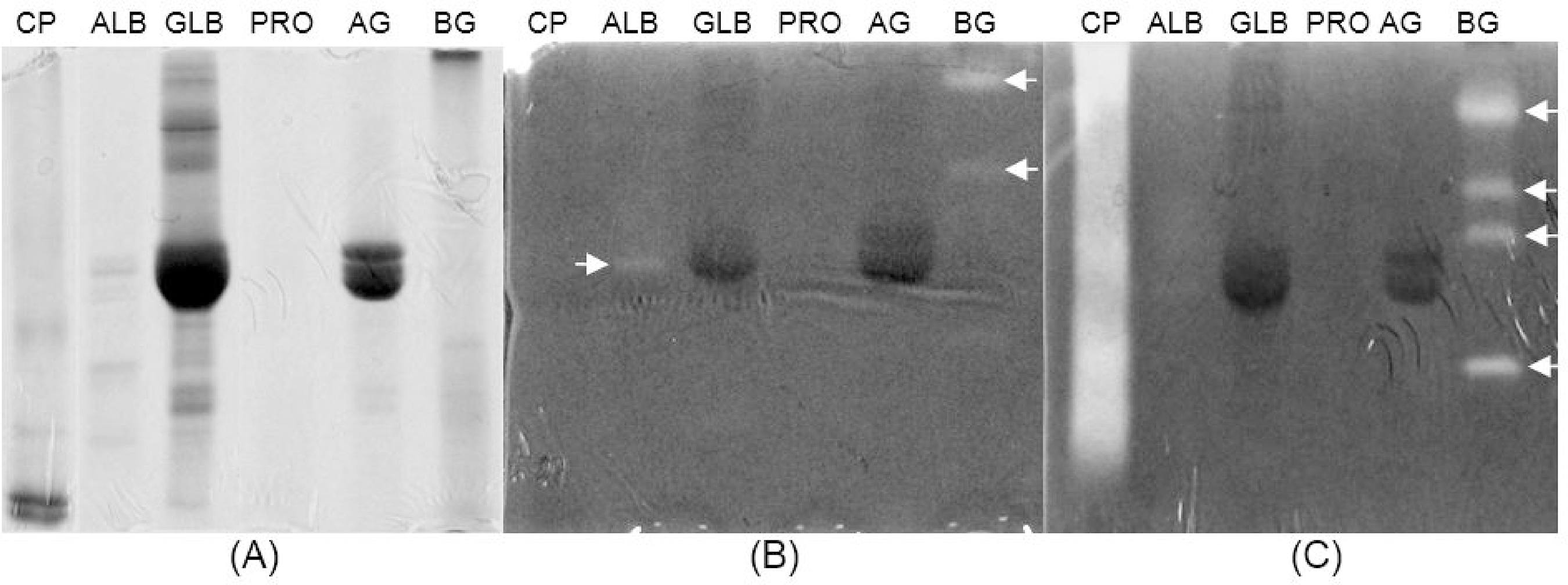ABSTRACT
Seeds of Acacia farnesiana are commonly sold in the local markets of northeastern Brazil as a therapeutic agent. The present work aimed to evaluate the anti-inflammatory and analgesic activities of proteins obtained from A. farnesiana seeds. Five different protein fractions (albumin, globulin, prolamin, acidic and basic glutelins) were obtained and investigated for the protein pattern, the presence of hemagglutinating and proteolytic activities. The globulin fraction (GLB) was also evaluated for anti-inflammatory and analgesic activities. Globulins reduced the paw edema induced by carrageenan in a dose-dependent manner, which was accompanied by a reduction of myeloperoxidase activity (p < 0.05). Additionally, GLB reduced the neutrophil peritoneal migration induced by carrageenan. However, GLB was not able to inhibit the edema triggered by dextran. Pre-treatment with globulins reduced the abdominal constrictions induced by acetic acid as well as the paw licking time induced by formalin (69.1% at first phase). However, it did not produce a significant antinociceptive effect in the hot plate test (55-56 °C). Treating the GLB with heat (at 100 °C for 30 min) abolished its anti-edematogenic and hemagglutinating activities. Our results showed that seeds from A. farnesiana are a source of proteins with anti-inflammatory and analgesic properties.
Keywords
cysteine proteinase; Coronha; inflammation; lectin; nociception





